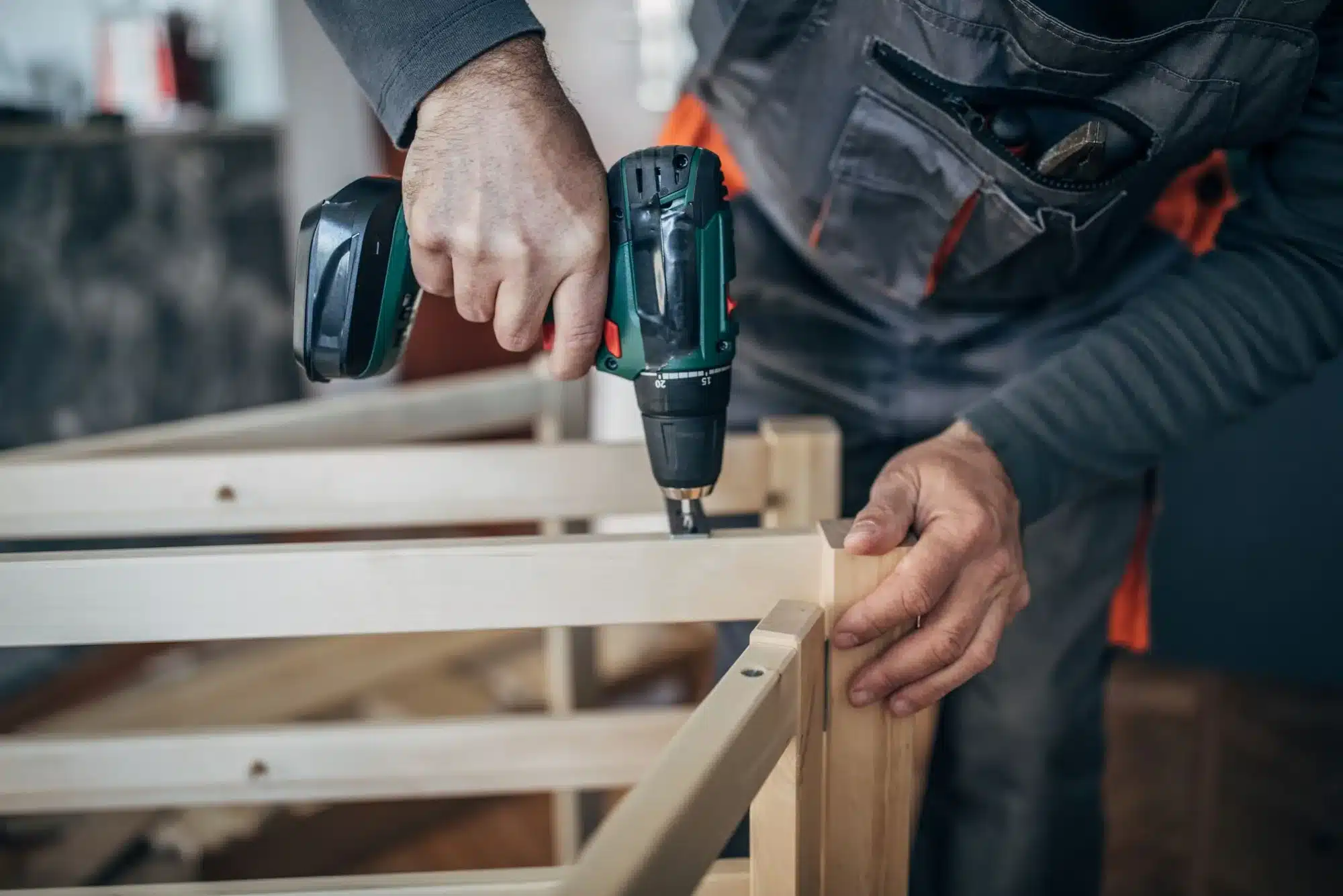Mastering the DIY vs. Handyman Decision

Navigating the Home Improvement Dilemma
Are you facing a household project and wondering whether to grab your tools or call in a handyman? The age-old dilemma of whether to DIY (Do It Yourself) or hire a professional can be quite a conundrum. In this comprehensive guide, we’ll help you navigate this decision-making process, providing valuable insights and tips to ensure that your home improvement project is a success.
Assessing Project Scope
To DIY or Not to DIY? That is the Question.
The decision starts with assessing the scale and complexity of the project. Consider your skills and experience. If it’s a simple task like changing a light bulb or fixing a leaky faucet, DIY may be the way to go. However, for larger, more intricate projects like electrical rewiring or major plumbing work, it’s often safer and more cost-effective to hire a professional.
Budget Considerations
Balancing Your Budget for Home Improvement
Evaluate your budget. DIY projects can be cost-effective, but sometimes, shoddy work can end up costing more in the long run. It’s essential to weigh the cost of materials and tools against hiring a handyman.
Time Constraints
Time: Your Most Precious Resource
Consider your availability. DIY projects can be time-consuming, and you need to determine if you can commit to the time required. A handyman, on the other hand, can complete the task efficiently and quickly.
Safety Concerns
Prioritizing Safety in Home Projects
Think about safety. Some projects can be dangerous, especially if you lack the expertise. Hiring a handyman ensures that the work is done safely and up to code.
Permits and Regulations
Navigating the Legal Labyrinth
Check local permits and regulations. Certain projects, like structural modifications or electrical work, may require permits. A professional handyman will be well-versed in local regulations and can ensure compliance.
Personal Comfort Level
Your Comfort, Your Choice
Assess your personal comfort level. If you feel confident and have prior experience, you may want to take on the project yourself. However, if you’re unsure or have concerns, it’s better to entrust the job to a professional.
FAQs
Common Questions About DIY vs. Handyman
-
Is DIY always the more cost-effective option? Not necessarily. While DIY can save money on labor costs, if you make mistakes, you might end up spending more on repairs.
-
Can I DIY complex projects with no prior experience? It’s not advisable. Complex projects require expertise to avoid safety hazards and costly errors.
-
What tools should I have for basic DIY projects? For simple DIY tasks, a set of basic tools like a hammer, screwdriver, pliers, and a tape measure should suffice.
-
Are there any projects I should never attempt on my own? Projects involving gas, electricity, or structural changes are best left to professionals due to safety and legal concerns.
-
How can I find a reliable handyman? Ask for recommendations from friends and family or check online reviews. Ensure they have proper licenses and insurance.
Conclusion
Making the Right Choice for Your Home
Deciding whether to DIY or hire a handyman is a crucial choice that can significantly impact your home improvement project. By carefully assessing the project’s scope, budget, and your own capabilities, you can make an informed decision. Always prioritize safety and compliance with local regulations. Remember, whether you’re a DIY enthusiast or prefer to hire a professional, the end goal is a successful and functional result.
The Importance of Clear Communication
Communication: The Bridge to Project Success
When you decide to hire a handyman, clear communication is key to ensure your project’s success. Make sure you understand the handyman’s approach and timeline. Discuss any specific details or preferences you have for the project. An open line of communication will help both parties work together harmoniously.
Celebrating DIY Success
Tales of Triumph in Home Improvement
While we’ve discussed the benefits of hiring a handyman, let’s not forget the satisfaction that comes from successfully completing a DIY project. Here are a few DIY success stories:
A Fresh Coat of Paint
Revamp Your Space with Paint
Repainting a room can give it a whole new look and feel. With some patience and the right tools, anyone can accomplish this task. Plus, it’s a great way to express your creativity.
Assembling Furniture
Mastering the Art of Furniture Assembly
Putting together flat-pack furniture might seem daunting, but with clear instructions and a little patience, it’s a task that many can handle.
Gardening and Landscaping
Creating Beauty in Your Backyard
Enhancing your outdoor space with landscaping and gardening can be a rewarding DIY endeavor. Planting flowers, creating pathways, or building a small garden shed can all be accomplished with some basic know-how and dedication.
Balancing Act
Striking the Right Balance in Home Improvement
Sometimes, the best approach is a combination of both DIY and professional help. For instance, you might choose to handle the simple tasks while hiring a handyman for the more complex elements of a project. This hybrid approach can help you save money without compromising quality.
Conclusion
A Personal Decision for Every Project
In the end, the choice between DIY and hiring a handyman is a personal one, influenced by the nature of the project, your own skills and comfort level, and your budget. The most important thing is to make an informed decision to ensure a successful home improvement project. Whether you opt for DIY or professional help, the satisfaction of seeing your vision come to life is a reward in itself.
So, the next time you’re faced with a home improvement project, remember the key factors to consider—project scope, budget, time, safety, regulations, personal comfort, and the importance of clear communication. By weighing these elements carefully, you can confidently decide whether to roll up your sleeves or hire a handyman to get the job done.
Essential Tools for DIY
Equip Yourself for DIY Success
If you’ve decided to embark on a DIY journey, having the right tools is paramount. Here are some essential tools you should consider having in your toolbox:
Measuring Tape
Precision Starts with Accurate Measurement
An accurate measurement is the foundation of any project. A measuring tape allows you to make precise cuts and placements.
Screwdriver Set
Versatile Tools for Multiple Tasks
A set of various screwdrivers, both flathead and Phillips, is essential for assembling and disassembling.
Hammer
The All-Purpose Helper
This versatile tool is used for everything from driving in nails to removing them.
Pliers
Your Go-To for Gripping and Cutting
Pliers are handy for gripping, twisting, and cutting wires, cables, and more.
Power Drill
Efficiency in Drilling and Screwdriving
A power drill is a must-have for drilling holes and driving screws efficiently.
Safety Gear
Safety First in DIY
Always prioritize safety with items like safety glasses, gloves, and a dust mask for protection. Safety gear ensures you can work comfortably and protect yourself from potential hazards.
Assessing Your DIY Skill Level
Know Your Skills for Successful DIY
Before starting a DIY project, it’s important to understand your skill level. Here’s a general breakdown:
Beginner
Starting Your DIY Journey
Those new to DIY should begin with simple projects like assembling furniture, painting, or small repairs. Online tutorials and DIY kits can be helpful.
Intermediate
Building on Your Skills
If you have some experience, consider tackling projects like installing light fixtures, basic plumbing repairs, or tiling. These projects may require a bit more expertise but are still manageable.
Advanced
Taking DIY to the Next Level
Advanced DIYers can take on more complex projects, such as remodeling a room, building custom furniture, or extensive electrical work. This level of expertise often involves specialized tools and a deep understanding of the trade.
Hiring a Handyman
The Professionals for Your Project
Sometimes, the best decision is to hire a handyman. A professional handyman offers several advantages:
Expertise
Experience and Knowledge at Your Service
Handyman services are backed by experience, training, and industry knowledge. They are equipped to handle various tasks with precision.
Time Savings
Reclaim Your Time with a Handyman
By hiring a handyman, you save time, allowing you to focus on other aspects of your life.
Quality Workmanship
A Guarantee of Quality
Handyman services provide a guarantee of quality work. They have the tools and skills to complete tasks efficiently and effectively.
Warranty
Peace of Mind for Your Project
Many handyman services offer warranties on their work, giving you peace of mind regarding the quality of the project.
DIY or Handyman: Your Decision
Choosing the Right Path for Your Home
In the end, the decision of whether to DIY or hire a handyman hinges on a multitude of factors. What’s important is that you make the choice that aligns with your abilities, comfort level, and the scope of the project.
The DIY spirit is admirable, but remember, it’s okay to seek professional help when needed. The key to a successful project is to be well-informed, safe, and ensure that the result meets your expectations.
So, the next time you’re facing a home improvement project, consider all the factors we’ve discussed, and you’ll be well on your way to making the right decision.
Remember, the goal is not just to get the job done but to ensure it’s done well, safely, and within your budget.
When to Call a Handyman
Times When Professional Help Is Essential
Certain situations warrant calling in a handyman without hesitation. These include:
Electrical Work
Safety First with Electrical Projects
Any project involving electrical wiring or fixtures should be handled by a licensed electrician. Safety should always come first.
Plumbing Repairs
Tackling Tricky Plumbing Issues
Plumbing can be tricky. A handyman can quickly identify and fix leaks or other plumbing issues to prevent water damage.
Structural Changes
Preserving the Integrity of Your Home
Projects that involve altering the structural integrity of your home, such as removing walls or expanding doorways, require professional expertise to ensure your home’s stability.
Roof Repairs
Leave Roofing to the Experts
Climbing onto the roof can be dangerous, and roofing repairs are best left to experts who can navigate heights safely.
Gas-Related Work
Safety in Dealing with Gas
Gas lines and appliances are sensitive areas. DIY work in this domain can lead to gas leaks, which pose serious safety risks.
When to Call A Handyman Conclusion
Balancing DIY and Professional Help
In the end, the decision to DIY or hire a handyman revolves around a careful assessment of the project’s scope, your skills, budget, and safety considerations. Both approaches have their merits, and your choice should reflect your personal circumstances.
Whether you enjoy the satisfaction of completing DIY projects yourself or opt for the expertise and reliability of a handyman, the key is to achieve your home improvement goals safely and effectively.
So, remember to evaluate the project, prioritize safety, and make an informed choice. Whether you decide to don the tool belt or place a call for professional help, the ultimate goal is a home you’re proud of.
Budget Considerations: A Closer Look
Diving Deeper into Home Improvement Budgets
When deciding whether to DIY or hire a handyman, the financial aspect plays a significant role. Let’s delve deeper into budget considerations.
DIY Budget
Your Personal Financial Investment
DIY projects typically have lower labor costs since you’re not hiring a professional. However, you need to factor in the cost of materials, tools, and potentially unforeseen expenses if mistakes are made. Make a detailed budget that includes everything from paint and screws to protective gear and cleaning supplies.
Handyman Budget
Investing in Professional Help
Hiring a handyman often involves a single, upfront cost. They’ll provide a quote based on the scope of the project. While this cost might seem higher than a DIY budget, it includes their expertise and the assurance of a professional finish.
Cost-Benefit Analysis
Short-Term Cost vs. Long-Term Value
Consider your overall budget and the long-term costs. For some projects, like electrical or plumbing work, investing in a professional ensures safety and minimizes future expenses due to shoddy work. Weigh the immediate cost against potential long-term savings and peace of mind.
Balancing Time Constraints
Time: A Valuable Currency in Home Improvement
Time is another crucial factor to consider when deciding whether to DIY or hire a handyman.
DIY Time
Your Personal Time Investment
DIY projects can be time-consuming. Before embarking on a DIY endeavor, evaluate your availability. Do you have the time to commit to the project without sacrificing other important aspects of your life, such as work, family, or personal time?
Handyman Time
Efficiency and Expertise
Handymen are professionals who are efficient and experienced in their work. They can complete projects quickly, freeing up your time for other priorities. When considering time constraints, ask yourself if the convenience of a swift and expertly executed job is worth the cost.
Safety Concerns: DIY vs. Handyman
Safety First in Every Project
Safety should always be a top priority when making the DIY vs. handyman decision.
DIY Safety
Taking Responsibility for Your Safety
If you’re tackling a DIY project, you must ensure your safety and that of your family. Familiarize yourself with the proper use of tools, and if your project involves potentially hazardous materials or procedures, seek guidance and wear appropriate safety gear.
Handyman Safety
Professionals with Safety in Mind
Handymen are trained to handle various projects with safety in mind. They are well-versed in safety protocols and can complete tasks without exposing you to potential risks.
The Importance of Compliance
Regulations and Permits in Home Improvement
Regulations and permits are often a necessity in home improvement projects. Failure to comply can result in fines or legal issues.
DIY and Regulations
Your Responsibility for Compliance
For some projects, local regulations and permits are required. DIYers must be diligent in researching and obtaining necessary permissions to avoid complications down the road. It’s essential to understand what’s required for your specific project.
Handyman and Regulations
Professional Compliance Assurance
Professional handymen are typically well-informed about local regulations and permits, and they will ensure that your project complies with these requirements. This can save you the hassle of dealing with bureaucratic red tape.
The choice between DIY and a handyman isn’t just about convenience and cost. It also involves a deep consideration of your time, safety, and legal responsibilities. To ensure a smooth and successful home improvement project, evaluate these factors meticulously.
Personal Comfort Level: A Huge Deciding Factor
Your Comfort Matters in Every Project
One often underestimated aspect is your personal comfort level with the project, for both the Handyman and the Homeowner.
DIY Comfort
Embracing Your DIY Journey
If you’re comfortable and confident with your skills, taking on a DIY project can be fulfilling. However, if you’re apprehensive or inexperienced, it’s better to err on the side of caution and consider hiring a handyman.
Handyman Comfort
Relax and Let the Experts Handle It
Handymen are well-versed in their trades, making them the ideal choice for complex or specialized tasks. They offer the comfort of knowing that an expert is in charge, allowing you to relax and enjoy the results.
In the end, your decision should align with your personal comfort and experience. It’s perfectly fine to start with simpler DIY projects and gradually work your way up as you gain more confidence.
Hire a Handyman or DIY: The Ultimate Guide

Get a Call Back
Get a free estimate and save your money!
Our Services
Talk to an Expert
Send an Email
